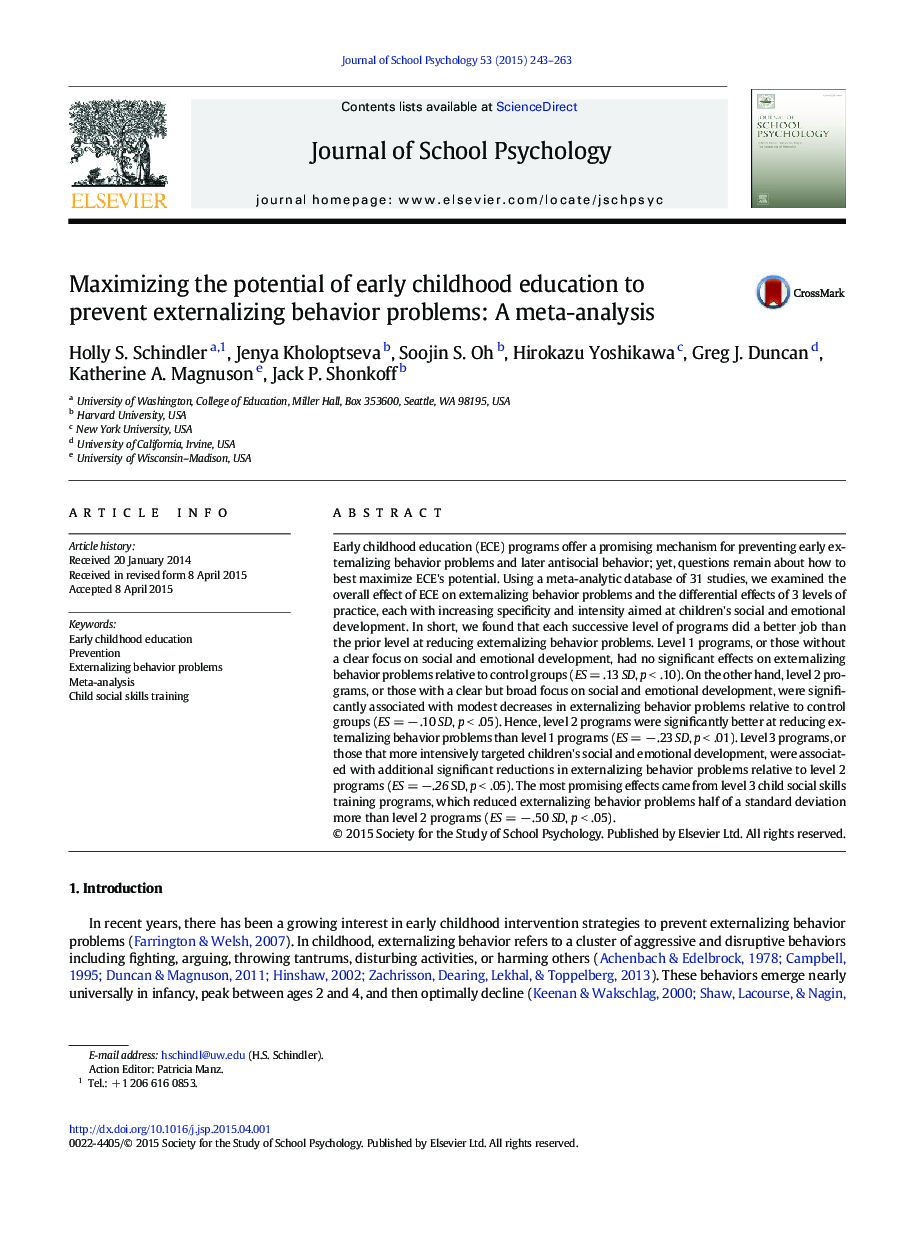| Article ID | Journal | Published Year | Pages | File Type |
|---|---|---|---|---|
| 363474 | Journal of School Psychology | 2015 | 21 Pages |
Early childhood education (ECE) programs offer a promising mechanism for preventing early externalizing behavior problems and later antisocial behavior; yet, questions remain about how to best maximize ECE's potential. Using a meta-analytic database of 31 studies, we examined the overall effect of ECE on externalizing behavior problems and the differential effects of 3 levels of practice, each with increasing specificity and intensity aimed at children's social and emotional development. In short, we found that each successive level of programs did a better job than the prior level at reducing externalizing behavior problems. Level 1 programs, or those without a clear focus on social and emotional development, had no significant effects on externalizing behavior problems relative to control groups (ES = .13 SD, p < .10). On the other hand, level 2 programs, or those with a clear but broad focus on social and emotional development, were significantly associated with modest decreases in externalizing behavior problems relative to control groups (ES = − .10 SD, p < .05). Hence, level 2 programs were significantly better at reducing externalizing behavior problems than level 1 programs (ES = − .23 SD, p < .01). Level 3 programs, or those that more intensively targeted children's social and emotional development, were associated with additional significant reductions in externalizing behavior problems relative to level 2 programs (ES = −.26 SD, p < .05). The most promising effects came from level 3 child social skills training programs, which reduced externalizing behavior problems half of a standard deviation more than level 2 programs (ES = − .50 SD, p < .05).
